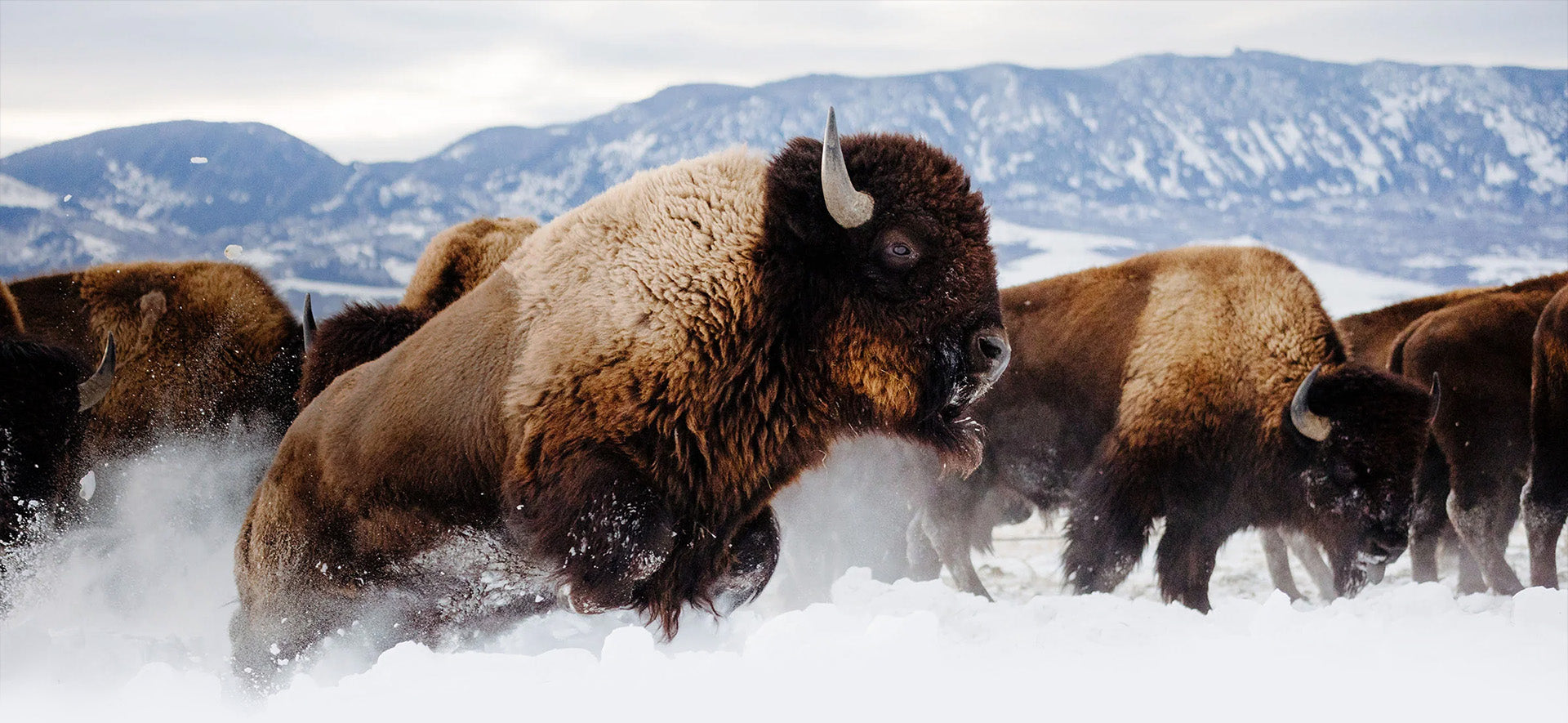HUMANE HANDLING & SLAUGHTER
HUMANE HANDLING & SLAUGHTER
Bison producers today supply a year-round market. That means that they need to select animals on a regular basis for processing. Bison right off pasture tend to be harder to handle and more flighty. Bison in a small pasture or corral settle with the daily presence of humans and eventually handle a bit easier. The result is less bruising, easier loading/sorting. This is even more important today with the concerns about animal welfare. So supplementing grain and forage to have them “on the gain”, and to become used to human interaction, provides less stress on the animal and more safety for the handlers.
All producers know that stress is a major factor that inhibits growth and compromises the health of their animals. Accordingly, bison finishers have adopted protocols that allow for adequate space so that bison can establish their pecking order without creating stress on the animals. As a rule, bison producers allow more room for animal than cattle producers in finishing facilities in order to alleviate stress on the herds.
Bison producers do not regularly sort animals among pens during the finishing phase. Again, every time you change the mix of animals, they have to establish a new pecking order, which increases stress and decreases performance.
Additionally, producers regularly use corrals as a means to house animals that are injured and ill, and to help those animals regain full health in a low-stress environment.
SLAUGHTER
Bison are considered an exotic or “non-amenable” species and are under voluntary inspection. This means that unless you will transport the meat across state lines, inspection is not necessary. Although Pennsylvania does not require meat inspection of slaughtered bison, many restaurants and retailers prefer USDA- or state-inspected meat. Voluntary inspection is handled under the Agriculture Marketing Act. USDA inspection is required if meat is to be sold across state lines. Five USDA-inspected slaughter plants licensed for bison operate in Pennsylvania, but any meat-processing plant licensed for exotics can slaughter bison. However, the plant must be willing to thoroughly clean the plant before and after the slaughter and must have equipment to adequately handle the larger animals.

HUMANE HANDLING & SLAUGHTER
BIG HORN BISON PRODUCTION & CONSERVATION
The Big Horn Bison Ranching System is structured to support bison production and conservation. Big Horn Bison owns the land encompassing our Big Horn Ranch. We are excited to build our herds over the coming years using these native and historical lands.

